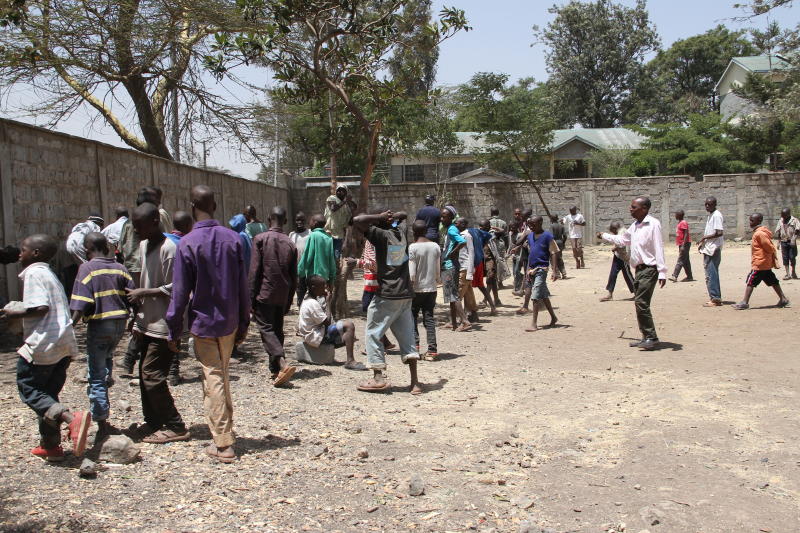×
The Standard e-Paper
Fearless, Trusted News

One can never tell Ken’s (not his real name) past as a street boy when he stands shoulder to shoulder with the rest of the school children at Morrison Primary School.
His creased light blue shirt is buttoned halfway and his green pair of shorts, which appears a little too tight, has its hem hanging. His hair has formed tiny tangles and knots, which sit beside each other on his head. His dry legs have white patches of dirt spread all the way up his knee, and on his foot black sandal.